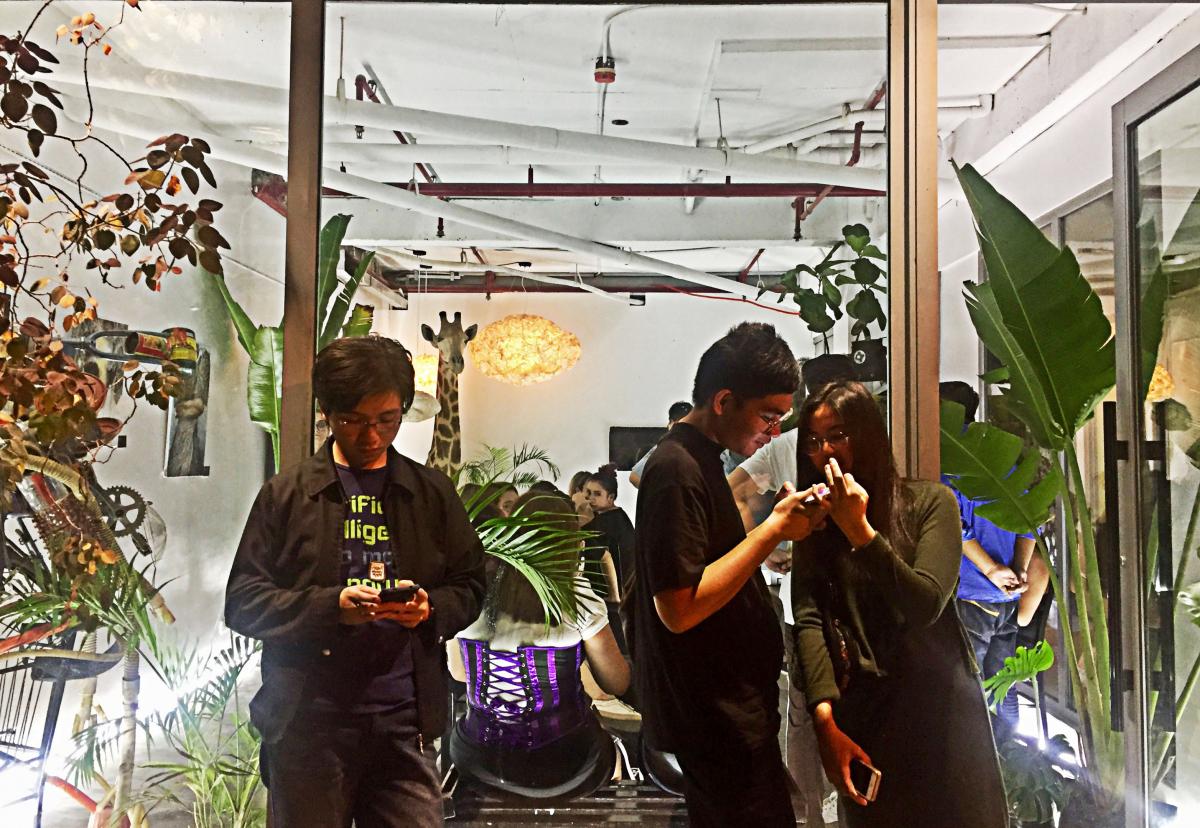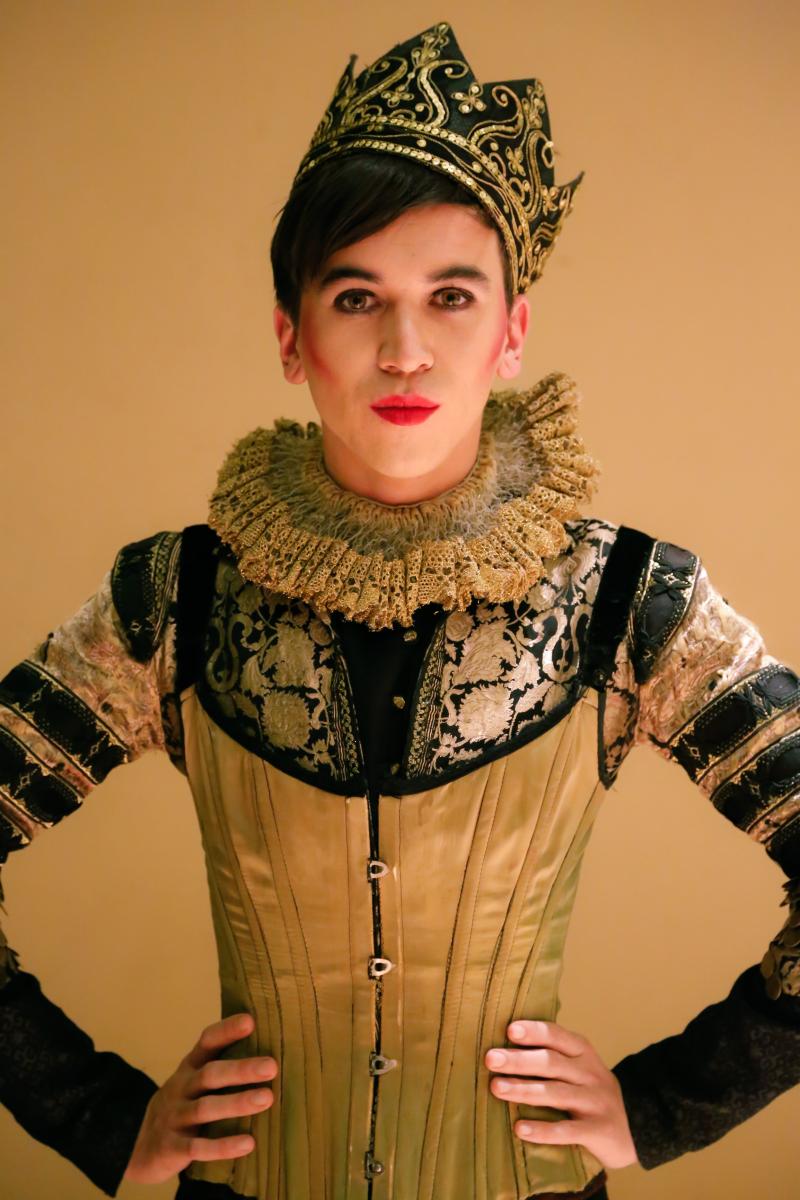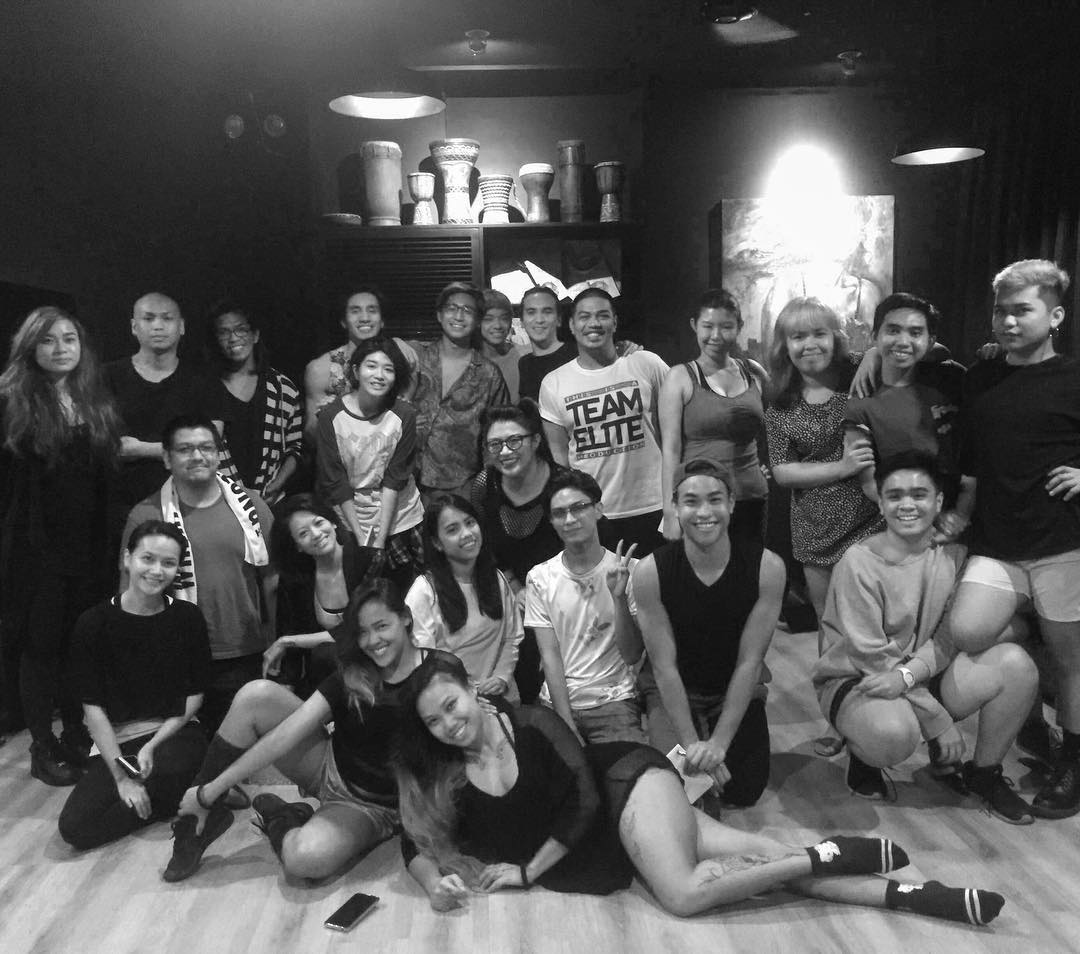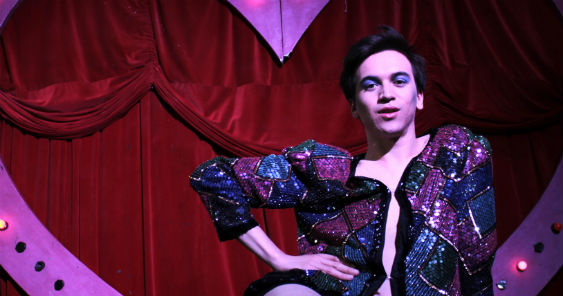By Lai Del Rosario
On a quiet street in Metro Manila’s business district, a group of young dancers and artists are presenting Vaudeville-inspired dance acts during Fringe Manila. In an intimate black box, audiences (mostly women) have come to discover live music and different takes to the artform of burlesque. Not surprisingly, the room is packed. The show is an attempt to show sexuality and bodies in all shapes, sizes and genders. All this in a place called Pineapple Lab.
Pineapple Lab is an art organisation that is also a creative hub providing a space for performance and art exhibitions. It has been producing Fringe Manila since 2015, an open access festival similar to Edinburgh’s original concept of Fringe, which aims to make art more accessible to a wider and more diverse audience. For the Lab, the festival is about collaboration, community engagement and artistic exchange. The idea has resulted in over 180 shows in more than 100 venues, in 2018 alone.

Pineapple Lab is located at the growing creative neighborhood of Poblacion in Makati City
Apart from Fringe, Pineapple Lab is also known for its special attention to programmes for the LGBTQ community. At the Lab, one can attend regular events like Gayborhood Night (“a different lineup of queer performers sharing their talents, stories, and [more often than not] articles of clothing..”) and Juicy Fruits Film Fiesta (“Celebrating fresh queer indie flicks!”). Such activities, therefore, offer a meeting space “to talk about issues that concern the plight of our brothers and sisters in the Filipino context, strengthen networks within the LGBTQ creative community, and find out different means of confronting the realities of the LGBTQ community through the arts,” explains Pineapple Lab Creative Director, Andrei Pamintuan.
Sam Reynolds is a London-based performer with British and Filipino roots, whose work aims to promote gender equality and inclusion by exploring themes on queerness, gender and sexual identity. Through a 2017 grant from Arts Council England and the British Council, he embarked on an artist residency at Pineapple Lab to develop new artistic work. He did an original piece, ‘Boy,’ during Vaudeville night, which masterfully combined lip syncing and dance. It was a commentary on sexism, misogyny, femmephobia, and queerphobia, which was, all at once, entertaining, mesmerising and disturbing.

Reynolds also organised performance workshops for drag performers, burlesque dancers and circus artists. He was surprised by the participants’ level of engagement, and the remarkable impact that the experience had on their level of confidence.
“Queer performance in such a cultural, social, political, and religious context as the Philippines is of course going to warrant a different audience response than in the UK, as it is not as commonplace. However, I have definitely come to realise that there is an interest in this kind of work here, as audiences have proven to be very receptive and up for it, which is brilliant and so crucial for a scene and community to develop.”

Class photo from Sam Reynold’s Twerkshop
It is true that at a time of rapid social change and uncertainty, it is more important than ever for vulnerable and marginalised communities to feel a sense of belonging and acceptance. Creative hubs like Pineapple Lab provide a safe space for self expression and artistic experimentation not just to LGBTQs, but to artists more generally, their audiences, and the immediate neighbourhood. Recognising the important role that creative hubs like Pineapple Lab play to enhance gender inclusion and community building in the Philippines, global organisations like the British Council and government agencies such as the Design Center of the Philippines (under the Department of Trade and Industry) have been supporting them to become more sustainable and impact-led.
Pineapple Lab Creative Director, Andrei Pamintuan adds, “What I hope is, that the LGBTQ artists see Pineapple Lab as one of the many safe spaces where their voices and artistry are seen and heard. What makes a safe space? Openness, selflessness, and honesty within the community.”
Main Image courtesy of Sam Reynolds
About the Author
Lai DEL ROSARIO is an art manager specialising in programme and international partnership development. She has over 10 years’ worth of experience in exhibition and project management, and currently heads British Council’s Arts and Creative Industries programme in the Philippines. She has worked and written publications on cross-cultural creative collaborations and culture-led urban development in Europe and Asia. Currently she works with several private and public institutions in the areas of sustainability, capacity building, and creative economy policy development. She has an MBA in Arts and Cultural Management from the Institut d’études supérieures des arts (IESA) and Paris School of Business, France.








